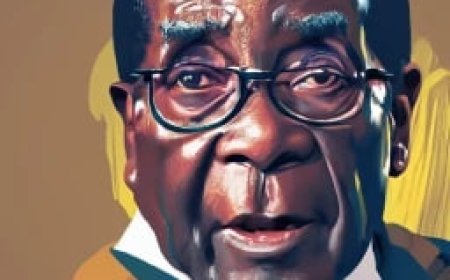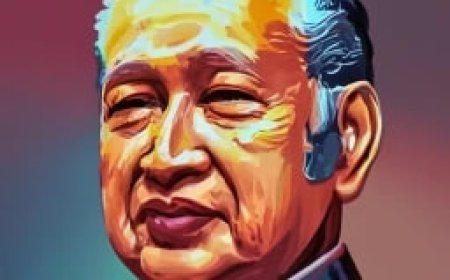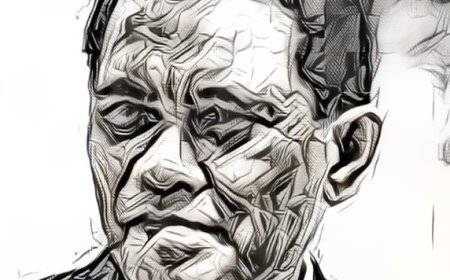National Security vs Individual Liberties: The Snowden Dilemma
For some, Snowden is considered a hero who dared to expose the truth, while for others, he is viewed as a traitor endangering national security.

Edward Snowden is a former contractor for the United States National Security Agency (NSA) who gained fame in 2013 after revealing the secrets of the mass surveillance program conducted by the U.S. government. Through a series of interviews with renowned media outlets, Snowden disclosed that the NSA was secretly collecting massive amounts of telephone and internet communication data, including the personal information of American and foreign citizens. He leaked details of covert operations named PRISM and Upstream, involving leading technology companies such as Google, Microsoft, and Apple. Snowden believed that such surveillance violated individual privacy rights and undermined democratic principles. However, his controversial actions sparked both condemnation and support from the public and governments. For some, Snowden is considered a hero who dared to expose the truth, while for others, he is viewed as a traitor endangering national security. After revealing this information, Snowden fled to Hong Kong and later sought political asylum in Russia. His story highlights the conflict between national security and individual privacy, triggering a global debate on government surveillance ethics in the digital era.
The timeline of Edward Snowden's story is as follows:
1. Employment at the NSA (2009-2013): Snowden joined a NSA contractor in 2009, gaining access to various secret programs and projects in electronic surveillance.
2. Decision to Disclose (May 2013): Snowden made the controversial decision to leak secret information about the NSA's mass surveillance program. He chose to collaborate with journalists to disseminate this information.
3. Information Leak (June 2013): Through meetings with journalists such as Glenn Greenwald, Laura Poitras, and Barton Gellman, Snowden revealed details of NSA's covert operations involving the mass collection of data from major technology companies.
4. Media Coverage (June 2013): Information leaked by Snowden began to be published by several major media outlets, including The Guardian, The Washington Post, and Der Spiegel, gaining global attention.
5. Pursuit by the U.S. Government (June 2013): The U.S. government accused Snowden of violating the Espionage Act and sought extradition from any country harboring him.
6. Escape to Hong Kong (June 2013): Snowden fled to Hong Kong after revealing information. There, he continued coordination with journalists to disclose more information.
7. Asylum Request in Russia (June 2013): After attempting to seek asylum in several countries, Snowden applied for political asylum in Russia after the U.S. government revoked his passport. Russia granted him asylum, causing diplomatic tension between the U.S. and Russia.
8. Life in Russia (Since August 2013): Snowden has lived in Russia with temporary residence permission. He continues to be a controversial figure, sparking global debates on privacy, civil liberties, and government surveillance ethics.
The geopolitical impact of Edward Snowden's actions is highly significant and involves various aspects of international relations, national security, and diplomacy. Here are some identifiable geopolitical impacts:
1. Deterioration of U.S.-Russia Relations: Snowden's decision to seek asylum in Russia led to a deterioration of relations between the United States and Russia. Russia granting asylum to Snowden became a source of intense diplomatic tension between the two countries.
2. Tension with Traditional Allies: Snowden's revelations about mass surveillance practices involving U.S. allies, particularly in Europe, caused tension and concerns in diplomatic relations with traditional U.S. allies.
3. Changes in Surveillance Policies: The publication of information leaked by Snowden triggered public and political debates on the limits of government surveillance on citizens and foreigners. Some countries changed or reconsidered their surveillance policies in response to privacy concerns.
4. Cybersecurity Considerations: Snowden's leaks raised serious questions about cybersecurity and its vulnerability to cyberattacks, both from state and non-state actors. This compelled countries to strengthen their cybersecurity defenses and evaluate information security strategies.
5. Empowerment of Activists and Human Rights Defenders: Snowden's actions empowered activist groups and human rights defenders to demand more transparency and privacy protection. Discussions about human rights and civil liberties deepened on a global scale.
6. Bilateral Diplomatic Tensions: Some countries targeted by Snowden's disclosures experienced tensions in bilateral relations with the United States. Controversies mainly involved countries cooperating with the NSA in surveillance programs.
7. International Legal Considerations: Snowden's case raised international legal questions related to extradition, political asylum, and the obligations of countries to protect whistleblowers. This could lead to changes in views and interpretations of international law regarding privacy and national security.
With so many impacts, it can be seen that Edward Snowden's actions have created waves of change and debate in global politics and diplomacy.
(source: chatgpt)
What's Your Reaction?
























































